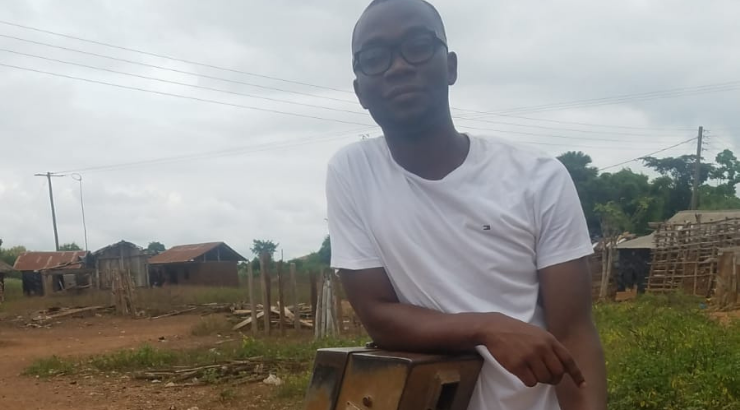
The labour-intensive nature of water collection in rural Ghana and its unequal retrieval, use, and management at home between sexes, exacerbate the vulnerability of women, girls, and PWDs, and increase their marginalization
What is your specific area of research?
My current research entitled, Drinking Water Security in Rural Ghana: The Implications of Community Experiences for Policy, seeks to contribute to the debate on water security by assessing how the concept is considered, articulated, and operationalized within the context of rural areas. Drawing on a conceptual framework that involves a plethora of socio-cultural, economic, political, and environmental dimensions, this cross-sectional study assesses how the absence or a dysfunction of any of these dimensions constitutes water insecurity and its effects on the rural population. I assess rural water security using the experiences of households, including marginalized populations such as women, girls, and people with physical disabilities. The labour-intensive nature of water collection in rural Ghana and its unequal retrieval, use, and management at home between sexes, exacerbate the vulnerability of women, girls, and PWDs, and increase their marginalization.
What sparked your interest in water research?
My interest in rural security was influenced by childhood experiences when water scarcity influenced my daily activities, including academic work. As a Canadian resident, I count my blessings that my water need for everyday use is the least of my worries. This is, however, in contrast with my situation a few years ago when storing enough water for future use was a significant part of my daily chores. Like my own experience, many people go through the challenge of meeting their daily water needs in most developing countries. Even though I grew up in urban areas, I decided to focus on rural water security because I knew that rural Ghanaians are multiple times more likely to be water insecure than urban dwellers and are more vulnerable to water scarcity due to urban biases. My concern was that the water security challenges that I encountered in my childhood days could be more severe on rural dwellers who may have little or no capacity to enhance access to safely managed water. As I later found, the World Health Organization estimated that among the billions of people who lack readily available drinking water in their homes, 84% live in rural areas. Rural areas have the least access to improved water facilities compared to urban areas.
What excites you about your research?
I am excited about being able to incorporate the experiences of people with disabilities in water security research. I found out that rural water security has social, structural, economic, and institutional barriers that pose challenges for such vulnerable populations. My research calls for the need to have their experiences represented in policy decisions.
Tell us about the first time you felt really excited about a research finding?
My excitement came from the comments received from reviewers about a manuscript on water security experiences of people with disabilities in rural Ghana. They acknowledged the limited representation of PWDs in water security research and the need to focus on such areas. They shared a similar view that assessing their experience represents them well in policy decisions involving rural water security in the Global South.
What do you hope to accomplish through your scientific research?
I will share my research findings through journal publications and presentations at regional, national, and international conferences. I hope to continue exploring the water security experiences of marginalized communities beyond the scope of Ghana by drawing on the interrelationships between race, class, gender, geography, and the environment.
Why is your research important? What are the local, national and global implications?
My research has two inter-related implications. The first constitutes a reconceptualized framework that involves the elements of municipal or rural water security and incorporates the sustainability of water resources and systems and a consideration of cultural preferences. The second involves the need to assess rather than assume marginalized populations' experiences such as rural residents, Indigenous groups, and people with disabilities in policy considerations on water security. These contributions can be explored further towards achieving water security and environmental justice in marginalized communities beyond the geographical scope of the research.
What words of inspiration would you like to share with the next generation of researchers?
We can give back to our communities by contributing to solving societal challenges through research. Our research should be informed by creating a sustainable environment and a focus on contributing to creating the kind of society we all wish to see.